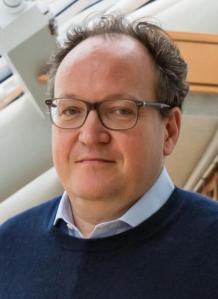Clean energy is now cheaper and faster to deploy than fossil fuels. The COP28 climate talks need to secure adequate resources for less-developed countries to reap the benefits.
As the world prepares for the annual United Nations climate talks in Dubai, it is tempting to succumb to despair. 2023 is expected to set a fresh record as the hottest year ever measured on Earth. Climate change is already manifesting itself as a clear and present danger: the megafires that burned for months across Canada and the torrential floods that wrought havoc in Libya and Italy are just a taste of the misery still to come if we fail to act.
Yet, the grim headlines don’t tell the whole story. A revolution is already in full swing. International Energy Agency data show that annual investment in clean energy sources now far outstrips spending on fossil fuel extraction. The cost of producing power from solar panels has dropped by almost 90% over the past decade. The cost of batteries and electricity production from wind farms have also fallen off a cliff.
The European Investment Bank is a proud supporter of this revolution, directing over half of its €65 billion in annual financing to the green transition, and two-thirds of the €10 billion invested in France in 2022. It is financing industrial decarbonisation projects such as electric battery gigafactories operated by AESC in Douai and Verkor in Dunkirk, as well as clean mobility projects in the Nouvelle-Aquitaine region.
Our decision to phase out support for fossil fuels back in 2019 has been vindicated by many market developments since then. Clean energy is now cheaper and faster to deploy than fossil fuels. So, the fact that low-emissions growth is now technologically feasible and economically sensible is a cause to celebrate. This does not mean it will be easy. While the “fuel” of renewables — the wind, the sun, water and geothermal power — is almost free, the upfront investment needed to develop these sources is massive, especially for low-income states.
Climate finance a key deliverable at COP28
That’s why a key deliverable from this year’s COP28 talks will be securing adequate resources, especially for countries where access to financing is constrained. Again, there is a glimmer of hope: multilateral development banks including the EIB are doing their part by delivering on their pledges. In 2022, they provided a record €55.6 billion in climate finance for less developed and emerging economies. And developed countries are expected to provide $100 billion a year in climate finance in developing countries.
There’s no doubt, more is needed, including to help the poorest countries adapt to the unavoidable impact of global warming. The EIB has already committed to tripling its adaptation financing. For example, EIB-financed projects to improve the water network in São Tomé and Príncipe and desalinate water in Djibouti will help deal with one of the most serious effects of a warming planet: water scarcity.
It’s a daunting list of challenges. That’s why we can only succeed if private and public sector, multilateral and commercial banks, more and less developed countries share not just the burden, but also the opportunities of the transition.
After a lot of hard work and persistence, we are finally starting to bend the emissions curve. But whether this is just a final shred of solace in a burning world, or the foundation of a more sustainable future, depends on COP28.
